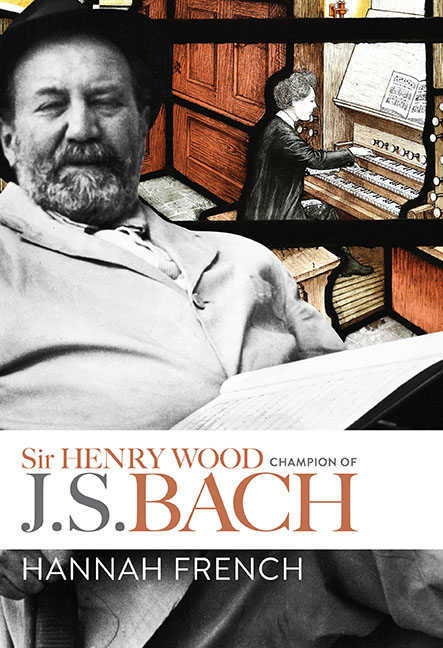Book contents
- Frontmatter
- Dedication
- Contents
- List of Illustrations
- List of Music Examples
- List of Tables
- Prologue
- Acknowledgements
- List of Abbreviations
- PART I CONTEXTUALISING
- PART II PROGRAMMING
- PART III INTERPRETING: ORCHESTRAL WORKS
- 5 Performance Scores
- 6 Recordings
- 7 An Editorial Project
- 8 Orchestral Arrangements
- PART IV INTERPRETING: VOCAL WORKS
- PART V INFLUENCING
- APPENDICES
- Bibliography
- General Index
- Index of Works by J.S. Bach
8 - Orchestral Arrangements
from PART III - INTERPRETING: ORCHESTRAL WORKS
Published online by Cambridge University Press: 07 September 2019
- Frontmatter
- Dedication
- Contents
- List of Illustrations
- List of Music Examples
- List of Tables
- Prologue
- Acknowledgements
- List of Abbreviations
- PART I CONTEXTUALISING
- PART II PROGRAMMING
- PART III INTERPRETING: ORCHESTRAL WORKS
- 5 Performance Scores
- 6 Recordings
- 7 An Editorial Project
- 8 Orchestral Arrangements
- PART IV INTERPRETING: VOCAL WORKS
- PART V INFLUENCING
- APPENDICES
- Bibliography
- General Index
- Index of Works by J.S. Bach
Summary
Personally, I feel when (for instance) an organ work is transcribed for orchestra, the transcriber should forget the organ and think only of the orchestra. Otherwise why transcribe?
(Henry Wood, My Life of Music, 1938)THE increasing number of Bach arrangements in the late nineteenth and early twentieth centuries was indicative of a growing interest in ‘old music’ presented in a modern style. The popularity of arrangements equally attracted value judgements on their authenticity and led to their categorisation as a separate genre, distinct from interpretations of Bach's original instrumentation. An anonymous letter to the Philharmonic Society describes a ‘Bach–Wood Suite’ as ‘frankly an arrangement’ which ‘must be accepted as such’, in effect applying different standards and defending Wood from criticism that might otherwise be levelled at his treatment of ‘original’ Bach. The terminology associated with a discussion of Wood's orchestral Bach is potentially problematic. The words ‘transcription’, ‘arrangement’, ‘orchestration’, ‘adaptation’, ‘version’, and ‘scoring’, are all used interchangeably by Wood, and by contemporary commentators and critics. It begs the question as to whether the labels matter. There is overlap in their meaning, but the choice of term usually implies some specific sense of the artistic process. ‘Orchestration’, ‘adaptation’, and ‘version’ are useful descriptors, but ‘transcription’ and ‘arrangement’ present more loaded meanings with regard to a third-party involvement – and also the potential artistic judgement on the final work. Contemporary discussion does not necessarily afford clarity. In his 1935 article ‘Arrangements and Transcriptions’, Evlyn Howard-Jones states: ‘Arrangements I would call a playing of the notes in another medium, transcriptions a recreation or making-over with regard to their imaginative and creative content.’ With regard to Wood, he cites ‘the transcriptions of the Organ Preludes and Fugues by Elgar, “Klenovsky,” etc., for the Orchestra’ in the same category as the piano transcriptions, stating that they are ‘no more justifiable … to those who would always rather hear an original’. His justification is that ‘any performance of a Bach Clavier work on the modern piano is practically a transcription, for although the notes remain the execution demands a definite interpretation of each and every sound in terms of an instrument of which Bach was innocent’.
- Type
- Chapter
- Information
- Sir Henry Wood: Champion of J. S. Bach , pp. 151 - 182Publisher: Boydell & BrewerPrint publication year: 2019



